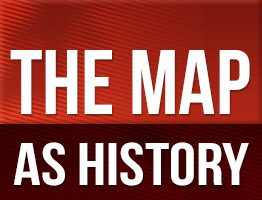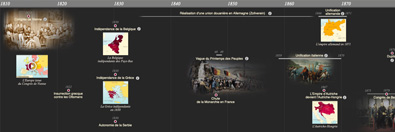This series contains 19 animated historical maps. For a preview, please consult the map below:
▶ Europe at the End of the First World War
Subscribe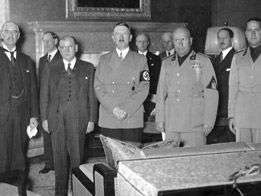
Europe and nations, 1918-1942
The First World War marked the decline of European domination in the world. Once the war was over, democracy and collective security seemed to triumph, but this hope was short-lived. The dissatisfaction created by the redrawing of frontiers, the fragility of new democratic regimes and the Great Depression plunged the continent back into war.
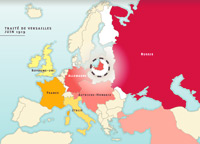
Europe at the End of the First World War
Complete video
Respect for the principle of nationalities and the maintenance of their power influenced the victors in redrawing European frontiers, confirmed by the various treaties signed from 1919-1920.
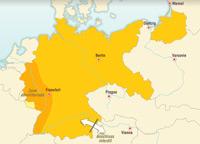
Germany and the Treaty of Versailles
Video extract
Seen as the instigator of the war, Germany lost a number of territories and had to pay the victors substantial reparations.
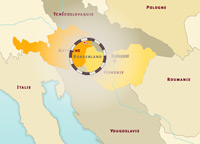
The Fate of Austria and Hungary
Video extract
Austria and Hungary were established as two separate states and lost much of their territory.
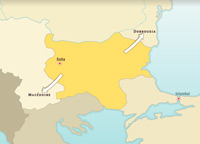
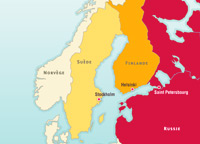
Independence for Finland
Video extract
Finland became independent after the collapse of the Russian Empire.
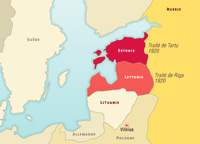
Independence for the Baltic Countries
Video extract
Previously part of the Russian Empire, the Baltic countries became independent at the end of the First World War.
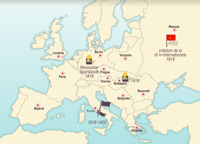
Europe in the 1920s
Video extract
The devastation of war, economic difficulties and resentments created by the treaties threatened the democratic regimes and collective security of Europe.
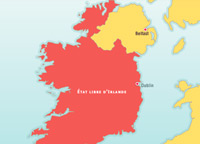
The Irish Question
Video extract
The Irish nationalists fought for their independence and succeeded in creating the free State of Ireland in 1921.
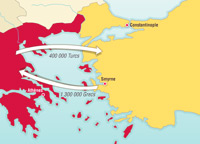
Greek-Turkish Relations between 1920 and 1923
Video extract
Territorial conflicts in the regions of Smyrna and East Thrace ended with large numbers of Greek and Turkish settlers leaving their home.
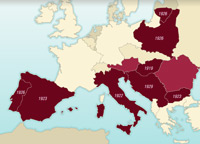
A wave of authoritarian regimes in the 20s
Video extract
During the 1920s, far right parties came to power in a number of European countries.
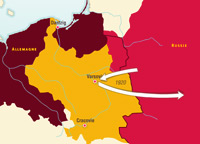
Reconstituted Poland
Video extract
Reconstituted by the treaties, Poland remained under threat from its two powerful neighbours: Russia and Germany.
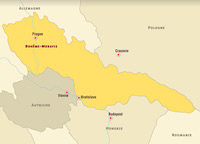
Czechoslovakia: A Multinational State
Video extract
Created from pieces of the former Austro-Hungarian Empire, Czechoslovakia brought together several nationalities to form a single state.
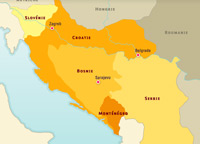
Yugoslavia: A Multinational State
Video extract
A common language and ethnic ties influenced the decision to give the Southern Slavs their own state.
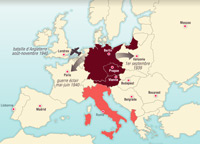
New Crises 1929-1942
Video extract
The Great Depression reinforced the authoritarian regimes in Europe. In the mid-1930s, dictators dominate international relations.
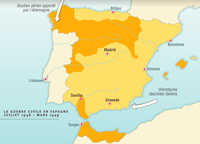
Spain: Republicanism and Civil War, 1931-1939
Video extract
Franco’s military uprising and three years of civil war put an end to Spain’s democratic republic.
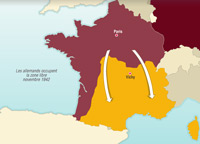
France: From the Third Republic to the Vichy Regime
Video extract
In France, the military debacle in May and June of 1940 brought down the Third Republic.
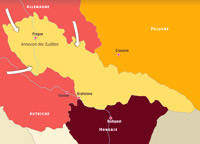
Dismantlement of Czechoslovakia (1938-1939)
Video extract
Abandoned by France and England at the Munich Conference, Czechoslovakia was soon torn apart.
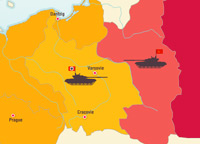
Poland Conquered and Dismantled (1939-1941)
Video extract
By signing the Molotov-Rippentrop Pact, Germany and the USSR sealed Poland’s fate.
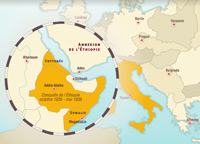
Italy in the 1930s
Video extract
Italy’s annexation of Ethiopia ended its alliance with France and England and pushed Mussolini closer to Germany.
